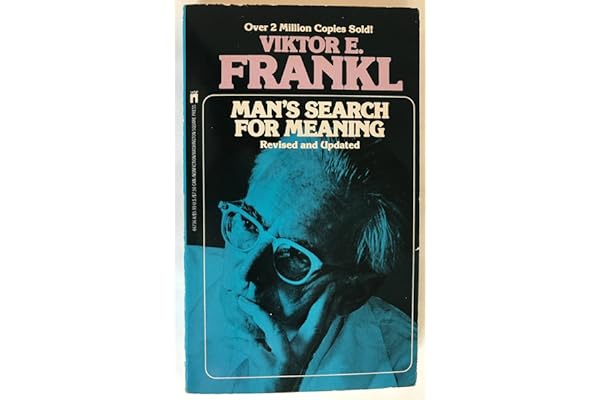One sentence summary:
A harrowing and profound account of a Holocaust survivor’s search for meaning in the midst of unimaginable suffering and his perspective on the human search for purpose and fulfillment.
Book genre:
Non-fiction, memoir, psychology, self-help.
Main topic of the book:
The search for meaning and purpose in life, based on the experiences and insights of a Holocaust survivor.
Key ideas:
- Life ultimately holds meaning, even in the face of extreme suffering and hardship.
- The search for meaning is a universal human need and is what gives our existence significance.
- Our attitude towards suffering and struggles can greatly impact our ability to find meaning in life.
- By finding meaning and fulfilling our individual purpose, we can develop a resilience and inner strength that can help us endure any circumstances.
Main parts of the book and a short summary:
Part One: Experiences in a Concentration Camp
This section describes the author’s personal experiences in Nazi concentration camps during World War II, including the suffering and loss of loved ones, and the struggle for survival. He shares his observations on the psychology of prisoners and the importance of hope in such extreme conditions.
Part Two: Logotherapy in a Nutshell
This section introduces the concept of logotherapy – the author’s own psychological theory – which focuses on the search for meaning in life as the primary motivation for human existence. He explains how logotherapy differs from other schools of psychotherapy and how it can be applied to help individuals find purpose and meaning.
Part Three: The Case for a Tragic Optimism
The author argues that even in the face of unavoidable suffering and tragedy, we still have the ability to choose our attitude towards it. He coins the term “tragic optimism,” which refers to maintaining a positive outlook even in the midst of the most difficult and tragic circumstances.
Key takeaways:
- Everyone has a unique and individual purpose in life, and finding it can bring ultimate fulfillment and meaning.
- Our attitude towards suffering and hardship plays a crucial role in our ability to find meaning in life.
- Our will to meaning can enable us to endure any circumstances and overcome adversity.
- Choosing an outlook of tragic optimism can help us find purpose and meaning even in the darkest moments.
Author’s background and qualifications:
Viktor E. Frankl (1905-1997) was a renowned neurologist and psychiatrist who survived the Holocaust and dedicated his life to helping others find meaning and purpose. He was the founder of logotherapy and wrote over thirty books, many of which have been translated into multiple languages.
Target audience:
This book is relevant to anyone searching for meaning and purpose in life, as well as those interested in psychology, Holocaust literature, and personal development.
Publisher and first publication date:
Beacon Press; the first English edition was published in 1959.

